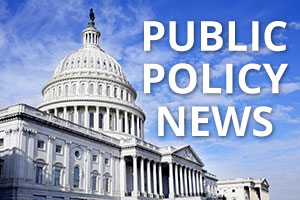by CUPA-HR | May 5, 2025
On May 1, the Department of Labor’s Wage and Hour Division (WHD) issued a field assistance bulletin providing guidance on determining employee or independent contractor status under the Fair Labor Standards Act (FLSA) while DOL reviews the 2024 final rule, Employee or Independent Contractor Classification Under the Fair Labor Standards Act. The rule currently faces legal action in multiple federal court cases in which the Trump DOL has taken the position that it is reconsidering the 2024 rule, including whether to rescind the regulation.
Simply put, the bulletin states that WHD “will no longer apply the 2024 Rule’s analysis when determining employee versus independent contractor status in FLSA investigations.” Instead, WHD will enforce the FLSA’s worker classification rules according to Fact Sheet #13, which was issued in 2008, and Opinion Letter FLSA2019-6, which was issued during President Trump’s first term.
The opinion letter from Trump’s first term articulates WHD’s position on gig economy worker classification, ultimately finding such workers to be independent contractors because they work for the consumer and do not fit “any traditional employment paradigm” under the FLSA. The Biden administration previously withdrew the opinion letter, but it has now been reinstated as Opinion Letter FLSA2025-2.
Fact Sheet #13 provides a broader perspective regarding the meaning of “employment relationship.” It specifically asserts that an employee under the FLSA is “one who, as a matter of economic reality, follows the usual path of an employee and is dependent on the business which he or she serves,” and that an employer-employee relationship under the law is tested by “economic reality.” It also lists seven factors that are considered significant by the Supreme Court in determining employee classification under the FLSA:
- The extent to which the services rendered are an integral part of the principal’s business;
- The permanency of the relationship;
- The amount of the alleged contractor’s investment in facilities and equipment;
- The nature and degree of control by the principal;
- The alleged contractor’s opportunities for profit and loss;
- The amount of initiative, judgment, or foresight in open market competition with others required for the success of the claimed independent contractor; and
- The degree of independent business organization and operation.
Looking Ahead
The field assistance bulletin changes the enforcement priorities of WHD with respect to worker classification, though the Biden administration’s independent contractor rule remains in effect for the time being. Legal challenges against the Biden rule are ongoing, and the Trump administration has started reviewing the regulation, though there is no official process yet to rescind it.
CUPA-HR continues to monitor for updates related to the independent contractor classification regulations and will keep members informed of future updates.


